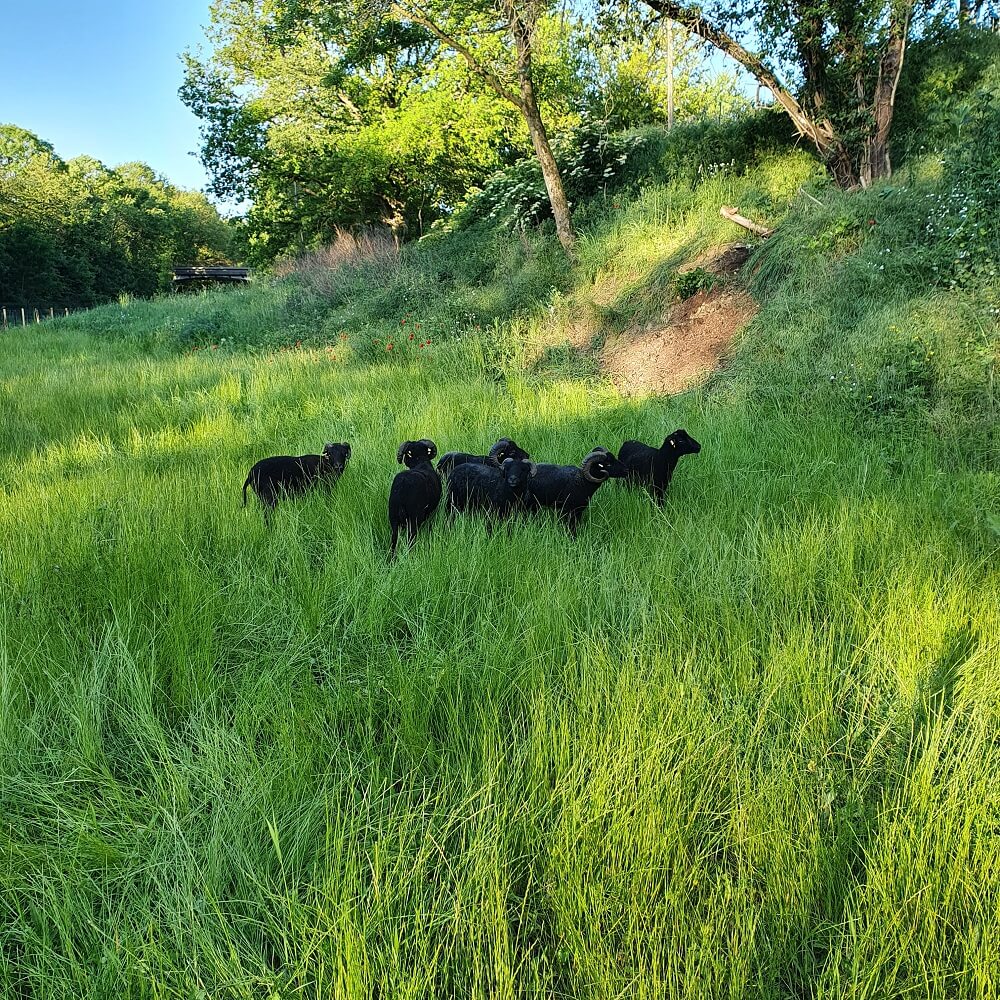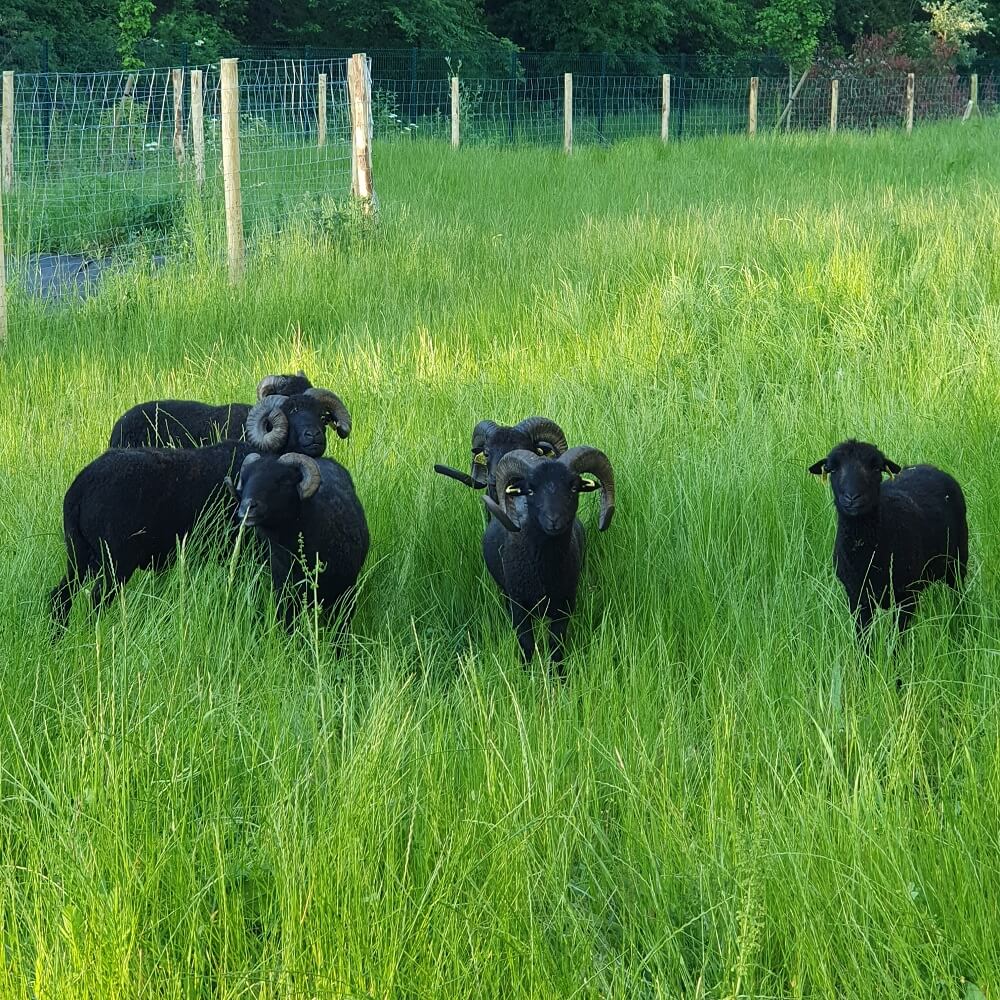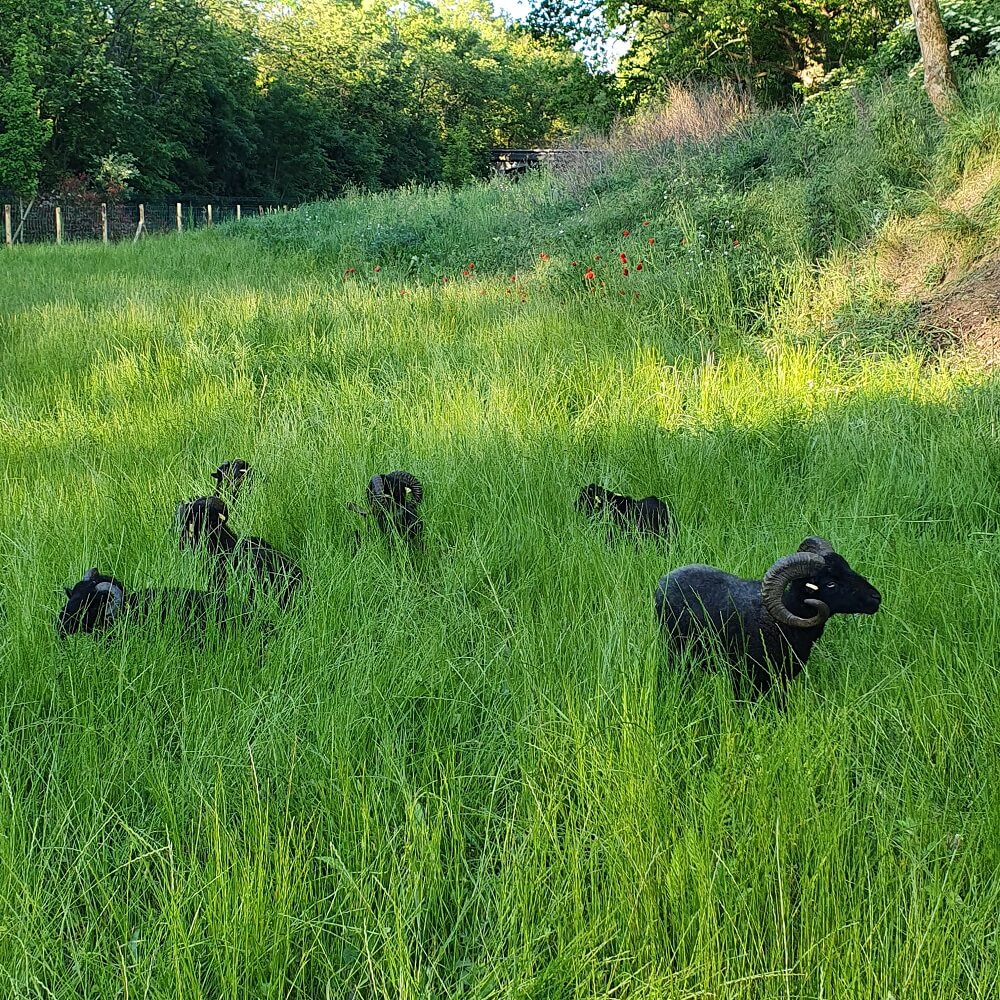These environmental benefits are numerous:
1/ Carbon footprint and improved quality of life:
Grazing has the advantage of not producing green waste, it makes no noise and it improves the carbon footprint due to limitation on the transport of materials and non-use of motorised equipment.
2 / Biodiversity
It enhances biodiversity by promoting the diversity of the species present on site: this is explained by the substrates created by sheep droppings but also by their food preferences which favours certain species.
3/ Safeguarding of heritage species
the selected sheep breeds correspond to a dynamic of safeguarding threatened ancient species. The Ouessant sheep is one of them.These environmental benefits can contribute to obtaining labels certifying the ecological management of green spaces.
It also has a social advantage; the animals are very often appreciated and contribute to well-being at work for on-site employees or for visitors. In terms of maintenance, grazing is possible even on inaccessible terrain where it is impractical to use machines; it ensures maintaining an open environment without mechanisation.
Support from a specialist like MUGO is essential for establishing the number of animals that can graze on a site, ensuring their health and proper maintenance of the site.
Your contact : fmanceaux@mugo.fr


